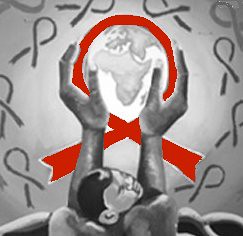 Programs that stress sexual abstinence have had no impact on HIV infection rates in the U.S., according to a new research review. But an abstinence education expert says the study is flawed.
Programs that stress sexual abstinence have had no impact on HIV infection rates in the U.S., according to a new research review. But an abstinence education expert says the study is flawed.Investigators analyzed findings from 13 studies comparing abstinence-only education to other forms of sexual education or no sexual education at all. Some 16,000 preteens and teens in the U.S. participated in the self-reported studies.
"We found no evidence at all that these abstinence-only programs resulted in lower HIV infection rates for any targeted subgroup," researcher Paul Montgomery, DPhil, of the University of Oxford's Center for Evidence-Based Medicine, tells WebMD.
SOURSE - WebMed
| Tags: Addiction, Depression, HIV and AIDS |
Labels: Addiction, Depression, HIV and AIDS, Stress
Post a Comment